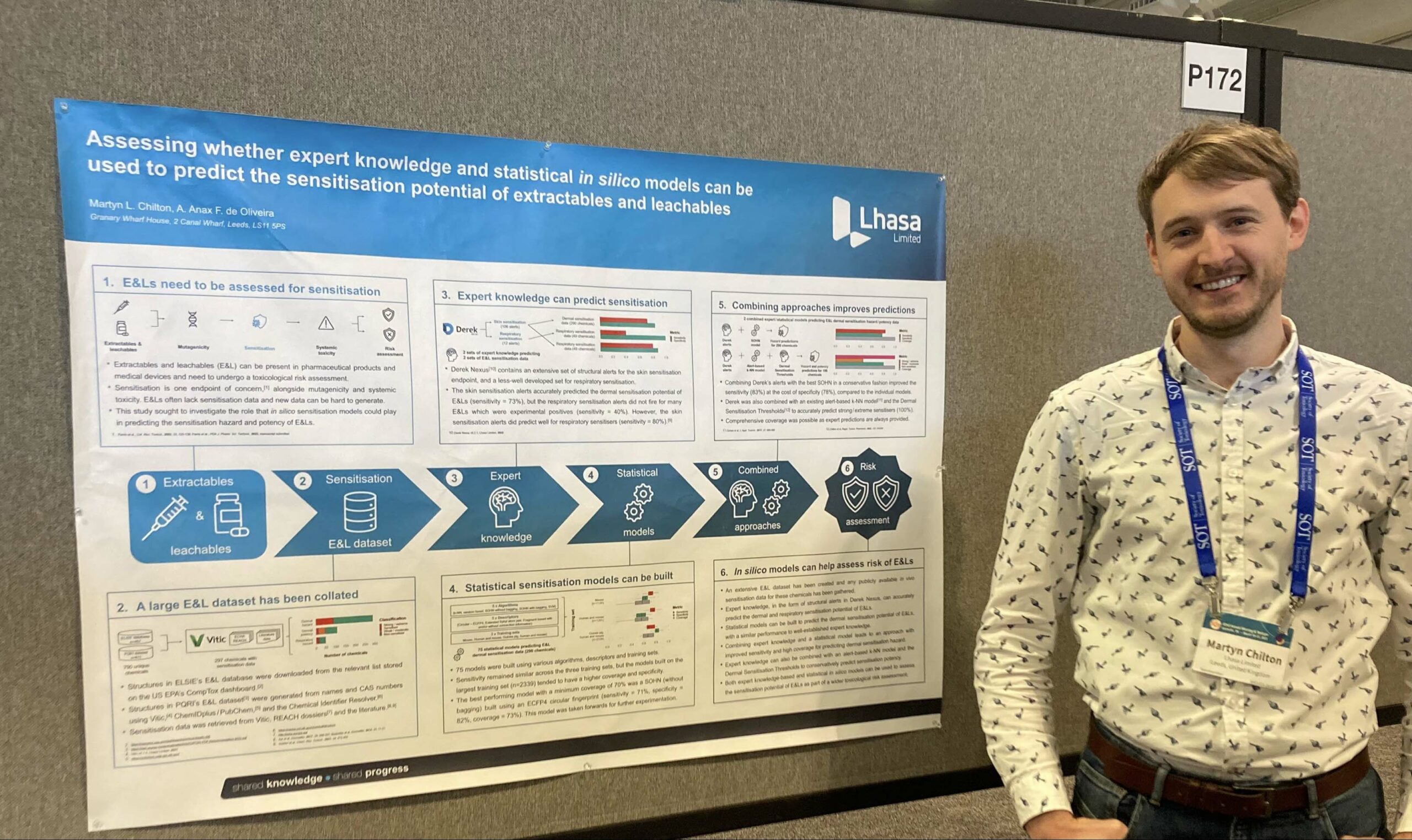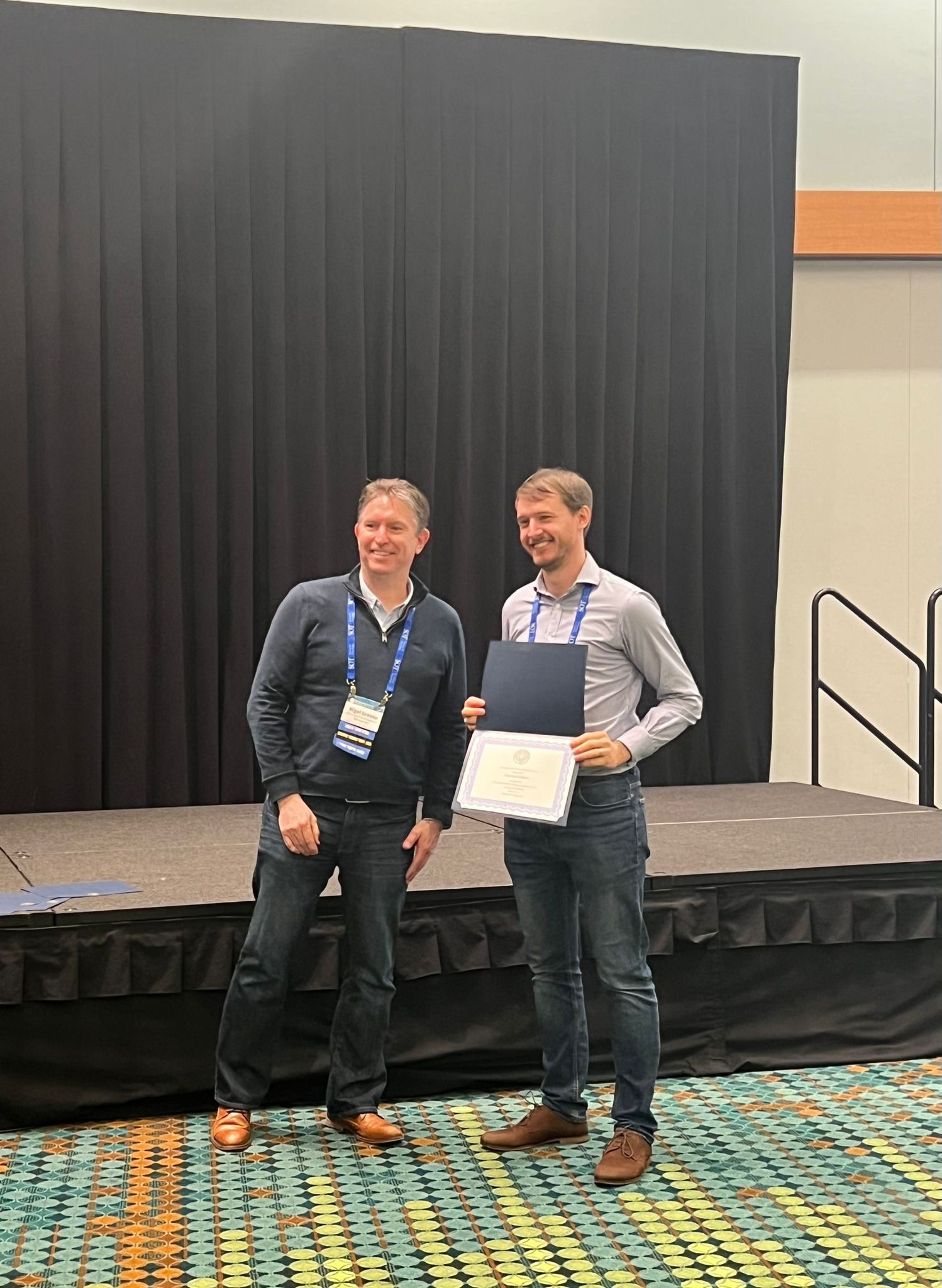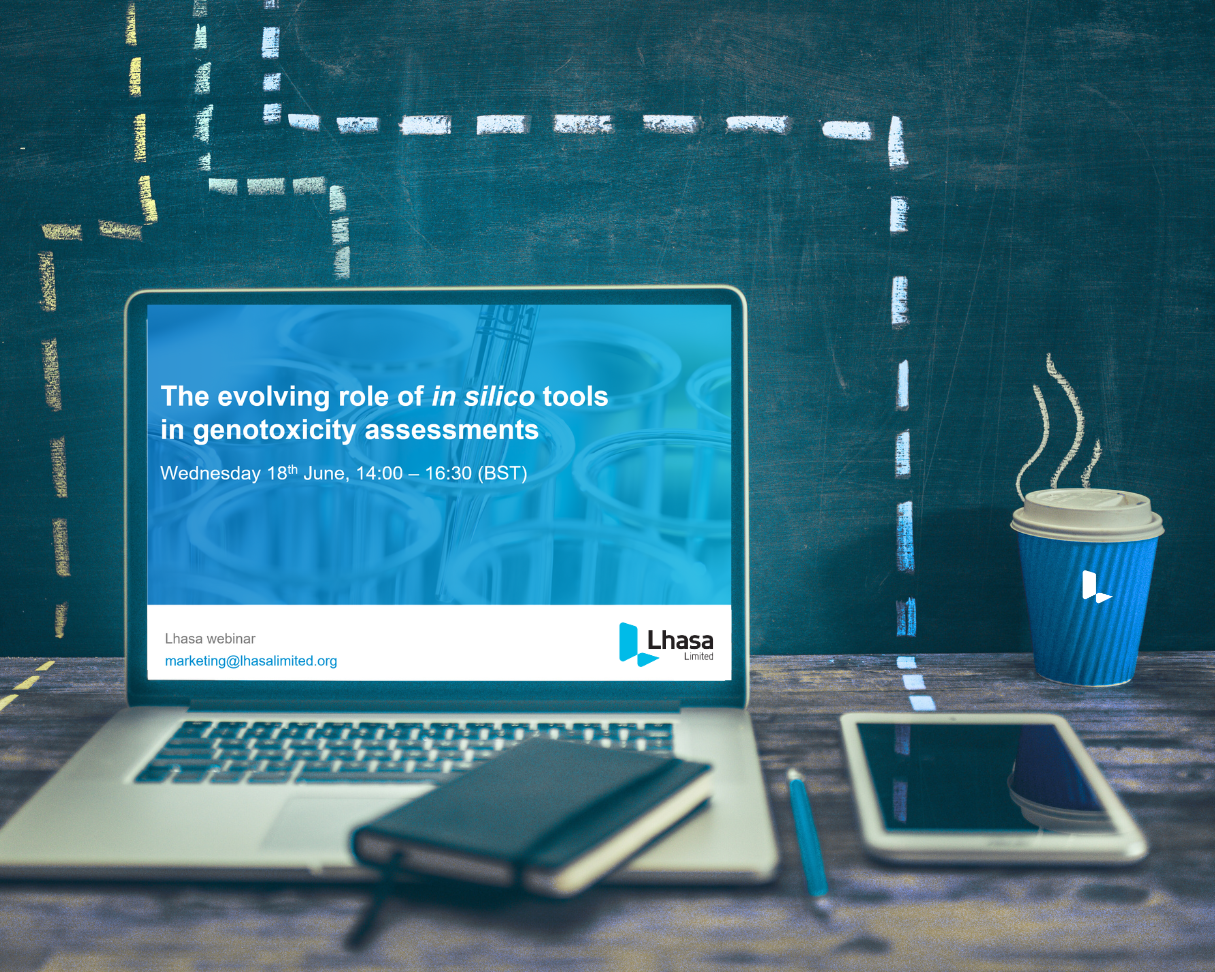We had a fantastic time at this year’s Society of Toxicology (SOT) in Nashville, Tennessee, where Principal Scientist, Dr. Martyn Chilton was shortlisted for two Best Overall Abstract awards!
Martyn was awarded ‘Top 10 Best Computational Toxicology Specialty Section (CTSS) Abstract’ and ‘Top 10 Best Risk Assessment Speciality Section (RASS) Abstract’ for his poster which discusses using in silico models to assess the sensitisation potential of extractables and leachables.
SOT is an annual toxicology conference which brings together thousands of toxicologists and individuals working in areas related to toxicology, sharing the latest science and technologies used within the field. We had a strong presence at the 62nd annual meeting, hosting two exhibitor-hosted sessions, authoring and co-authoring a selection of scientific posters and exhibiting our new booth within the ToxExpo exhibit hall.
Martyn’s award-winning poster, co-authored by Lhasa’s Director of Science Anax Oliveira, examines whether expert knowledge-based and statistical in silico models can be used to predict the sensitisation potential of extractables and leachables, and as part of a wider toxicological risk assessment. As lead author, Martyn was presented with a certificate from CTSS and RASS for making it to the final 10 during the SOT awards ceremony.

Martyn with his scientific poster during the Computational Toxicology poster session.

Martyn receiving his certificate during the SOT-CTSS awards ceremony.
The ‘Top 10 Best SOT-CTSS Abstract Award’ is organised by the Computational Toxicology Specialty Section, and any abstract submitted to SOT that focuses on computational toxicology is eligible for this award. Similarly, the ‘Top 10 Best SOT-RASS Abstract Award’ is organised by the Risk Assessment Speciality Section and is applicable to any abstract submitted which indicates a risk assessment focus or impact.
If you would like to learn how in silico models can help you in assessing the sensitisation potential of extractables and leachables, and as part of your wider toxicological risk assessment, please reach out to us for a copy of Martyn’s poster.
For more information on the in silico tools we provide to support skin sensitisation risk assessment, view our infographic.
Last Updated on January 10, 2025 by lhasalimited



